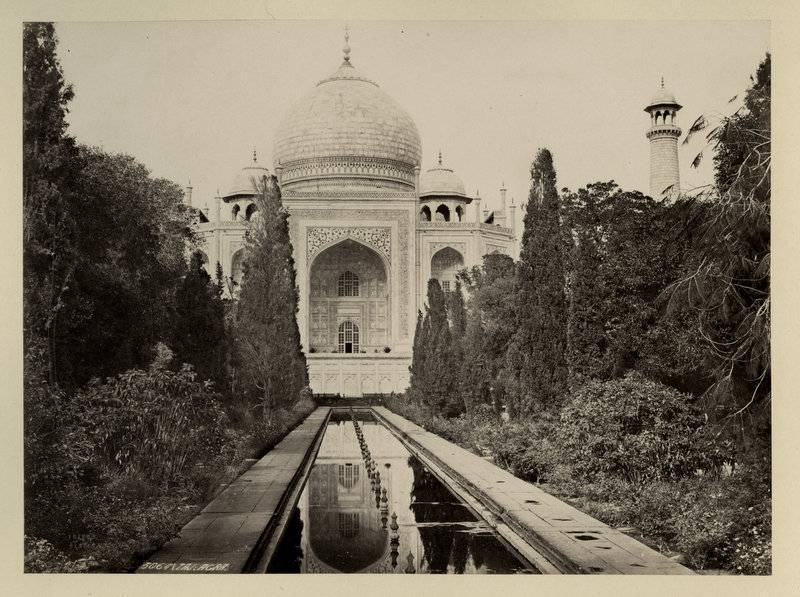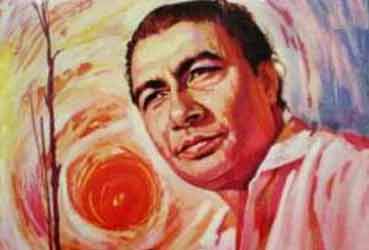
 Sahir Ludhianvi, one of the key figures of the Progressive Writers Association in latter part of the twentieth century was born 100 years ago today in Ludhiana, that dreamy Punjabi territory that has given Urdu literature some of the enduring icons of Urdu literature like Saadat Hasan Manto, Ibne Insha, Hameed Akhtar and Zahid Dar, who passed in Lahore last month. Sahir was a popular Urdu poet second to the inimitable Faiz Ahmad Faiz. One of Sahir's enduring poems is Taj Mahal, which displays a unique consciousness about a cultural and civilizational asset and is also an outstanding in terms of its impact. Sahir Ludhianvi made his place among Urdu Progressive poets with Taj Mahal, where for the first time the past was presented as a cruel example of exploitation rather than glory; and people’s alienation from symbols of monarchy was recounted in no uncertain terms. In the poem, Sahir invokes the Taj to rail against patriarchy and royal privilege. Taj Mahal was also sung beautifully by Mohammad Rafi in the 1964 film Ghazal.
Sahir Ludhianvi, one of the key figures of the Progressive Writers Association in latter part of the twentieth century was born 100 years ago today in Ludhiana, that dreamy Punjabi territory that has given Urdu literature some of the enduring icons of Urdu literature like Saadat Hasan Manto, Ibne Insha, Hameed Akhtar and Zahid Dar, who passed in Lahore last month. Sahir was a popular Urdu poet second to the inimitable Faiz Ahmad Faiz. One of Sahir's enduring poems is Taj Mahal, which displays a unique consciousness about a cultural and civilizational asset and is also an outstanding in terms of its impact. Sahir Ludhianvi made his place among Urdu Progressive poets with Taj Mahal, where for the first time the past was presented as a cruel example of exploitation rather than glory; and people’s alienation from symbols of monarchy was recounted in no uncertain terms. In the poem, Sahir invokes the Taj to rail against patriarchy and royal privilege. Taj Mahal was also sung beautifully by Mohammad Rafi in the 1964 film Ghazal.Just as Nur Jahan’s tomb in Lahore served as an inspiration for the more famous Taj Mahal at Agra, interestingly it also served as the inspiration for Taj Mahal.
While responding to a query by his friend, the writer and poet Krishan Adeeb, Sahir confessed that he had not visit the Taj Mahal prior to writing his famous poem Taj Mahal; neither had he even been to Agra. Actually he wanted to write a poem on the tomb of empress Nur Jahan but it did not receive much attention, therefore he wrote the poem on Taj Mahal. After all, he wondered aloud, what was the need to visit Agra for this purpose? Furthermore, Sahir had studied Karl Marx’s philosophy and also knew something about terrestrial study. He also knew that Shah Jahan had built Taj Mahal along the Jamuna for his wife Mumtaz Mahal.
The poem is being presented here with my humble translation along with the Urdu text not only to celebrate Sahir’s birth centenary but as a tribute to the resilience of proletarian love as opposed to the transience of elitist love:
‘Taj tere liye ik mazhar-e-ulfat hi sahi
Tujh ko is vaadi-e-rangeen se aqeedat hi sahi
Meri mehboob kahin aur mila kar mujh se!
Bazm-e-shahi mein ghareebon ka guzar kya maani?
Sabt jis raah pe hon satvat-e-shaahi ke nishan
Us pe ulfat bhari roohon ka safar kya maani?
Meri mahboob, pas-e-parda-e-tashheer-e-vafaa
Tu ne satvat ke nishaanon ko to dekha hota?
Murda-shahon ke maqaabir se bahalne vaali
Apne tareek makaanon ko to dekha hota?
An-ginat logon ne duniya mein mohabbat ki hai
Kaun kehta hai ke sadeq na the jazbe un ke?
Lekin un ke liye tashheer ka saamaan nahin
Kyon ke vo log bhi apni hi tarah muflis the
Ye imaaraat, vo maqaabir ye faseelen ye hisaar
Mutlaq-ul-hukm shahenshahon ki azmat ke sutoon
Daaman-e-dahr pe us rang ki gulkaari hai
Jis mein shaamil hai tire aur mire ajdaad ka ḳhoon
Meri Mehboob, unhen bhi to mohabbat hogi
Jin ki sannaai ne baḳhshi hai use shakl-e-jameel
Un ke pyaaron ke maqaabir rahe benaam-o-namood
Aaj tak un pe jalaayi na kisi ne qandeel
Ye chamanzaar ye Jamunaa ka kinaaraa, ye mahal
Ye munaqqash dar-o-deevaar, ye mehraab, ye taaq
Ek shahenshah ne daulat ka sahara le kar
Ham ghareebon ki mohabbat ka udaaya hai mazaaq!
Meri mehboob kahin aur mila kar mujh se!’
(The Taj may be a symbol of love for you
And you may place faith in that verdant valley
But my love, please meet me elsewhere.
What is the meaning of the presence of the poor in these palaces?
On the paths, where the majesty of kings has been etched
Why should loving souls sojourn here?
My love, behind the curtain of exhibitionist romance
Do you not observe the marks of elitism?
You who are calmed in the mausoleums of dead kings
Could you not cast a look at your own dark house?
Countless people have fallen in love before
Who says their emotions were not authentic?
But this indelible memory is not for them
For they, like us, were poor.
This building, those tombs, these parapets, that fort
The signs of the grandeur of sovereign kings
Are like rose-hued writing on the face of this world
That has been coloured with the blood of your ancestors and mine.
My beloved, they too must have loved passionately
They – whose craft has given (the Taj) its beautiful visage
Their loved ones lie in unmarked graves
Where no one even lights a candle.
These gardens, these banks of the Jamuna, this palace
These intricately carved walls and doors and awnings
An emperor has used his immense wealth to mock the love of us poor.
My love, meet me anywhere but here.)
Note: All translations are by the writer.

